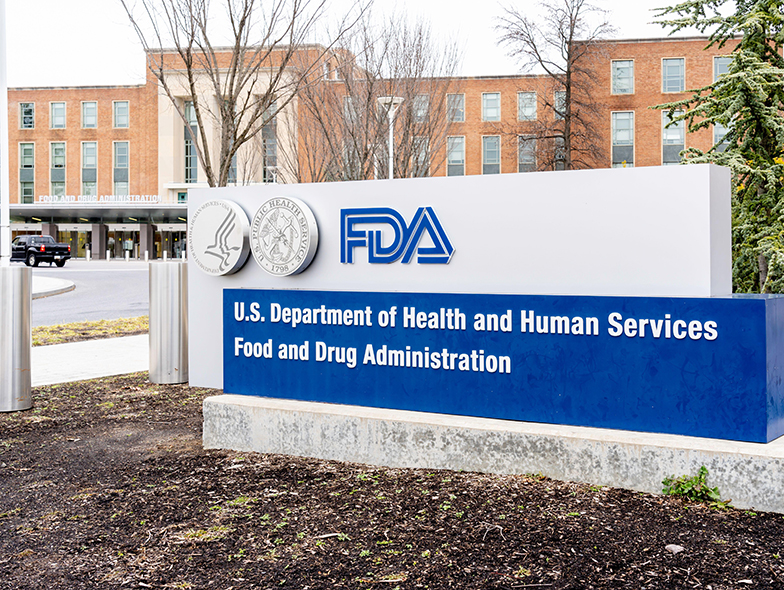US FDA grants priority review for Eisai and Biogen's Alzheimer's drug

Decision by US drug regulator on lecanemab expected by early next year
The US Food and Drug Administration (FDA) will fast-track its review of Eisai and Biogen’s investigational Alzheimer's drug lecanemab, with a decision due by January 6, 2023.
Eisai and Biogen announced this week that the US drug regulator had accepted its Biologics License Application under the accelerated approval pathway for lecanemab, an investigational monoclonal antibody for the treatment of mild cognitive impairment caused by Alzheimer's disease.
Like the partners' previous drug Aduhelm, lecanemab is an antibody designed to remove sticky deposits of a protein called amyloid beta from the brains of people with early-stage disease.
The Clarity AD Phase 3 clinical study for lecanemab is ongoing and Eisai completed enrolment in March 2021 with 1,795 patients. The study is designed to show that the drug can slow the rate of cognitive and functional decline by at least 25% and readout of the primary endpoint data will take place later this year. Depending on the trial’s results, Eisai says it plans to submit an application for traditional approval of lecanemab to the FDA before March 31, 2023.
Speaking about the news, Eisai CEO Haruo Naito commented: ‘The acceptance of lecanemab's BLA with priority review is an important milestone in serving people living with Alzheimer’s disease who have been waiting for new treatment options to address an underlying pathology of Alzheimer’s disease. We will continue to actively cooperate with the FDA's review in an effort to bring this new treatment option to people living with Alzheimer’s disease and their families as soon as possible.’
Under the FDA's accelerated pathway, lecanemab needs to show it can effectively interfere with underlying changes that lead to Alzheimer’s dementia, rather than prove any impact on cognition. Such a biomarker would be the level of amyloid proteins in the brain.
This is the same standard the FDA used for approving Aduhelm, the other Alzheimer’s drug produced by the partners which was approved last year. This was met with criticism as only one of two late-stage trials showed it helped slow cognitive decline, and the FDA’s own panel of external experts subsequently advised against its approval.
In December last year, the European Medicines Agency recommended refusing marketing authorisation for Aduhelm. Eisai and Biogen withdrew their application in April 2022.
There is currently no cure for Alzheimer's disease, which is characterised by memory loss, confusion and the inability to care for oneself. However, there are several approved treatments on the market.
Of these, three medications – donepezil (Aricept™), galantamine (Reminyl™) and rivastigmine (Exelon™) – are cholinesterease inhibitors. These medications can prevent the breakdown of a brain chemical called acetylcholine, which can prevent decline in learning and memory in the short-term.
Another medication, called memantine (Ebixa®), is an NMDA receptor antagonist, which is thought to work by affecting the brain chemical glutamate. Glutamate is released in excessive amounts when brain cells are damaged by Alzheimer’s and memantine may protect brain cells by blocking the effects of this excess. It is generally prescribed for people in the middle and late stages of disease.
Eisai serves as the lead of lecanemab development and regulatory submissions globally. Both Eisai and Biogen co-commercialise and co-promote the product, while Eisai retains final decision-making authority.
Related News
-
News Pharmaceutical industry supports COP28 health stance in joint statement
As COP28 takes place over this week in Dubai, UAE, several bodies in the pharmaceutical and health industries have come together to announce support of key movements in sustainability in the sector, and to recognise sustainability as a health issue.&nb... -
News Biden backs Cold-War measures to shore-up medical supply chains
In a recent strategy to combat rising inflation and the cost of living crisis, President Joe Biden has invoked a Cold War-era act to increase investment in a selection of medicines and supplies. -
News CPHI Podcast Series: What does the changing US Pharma market mean for industry and patients alike?
In this week's episode of the CPHI Podcast Series Lucy Chard, Digital Editor for CPHI Online is joined by James Manser to discuss the political and market changes in the US pharma field. -
News Which 10 drugs are open to price negotiation with Medicare in the USA?
The Centres for Medicare & Medicaid Services, under the Biden administration in the USA, has released a list of the 10 drugs that will be open to price negotiations as part of the new legislation under the Inflation Reduction Act (IRA). -
News 10 Major Drug Approvals So Far in 2023
Last year, 37 novel drugs were approved by the FDA, this was a high number for such a category, and covered many fields including oncology, demonstrating how promising further research is, and how it is only continuing to build. To date, there are alre... -
News Novartis agrees for copies to be made of cancer drug to reach poorer countries
Novartis signs agreement with MPP to have generics of it's leukemia drug made so that it can be more easily distributed to the world's poorer countries. -
News CPHI Podcast Series: outsourcing and manufacturing trends
Listen to the CPHI Podcast Series this June to hear Gil Roth of the PBOA speak with Digital Editor Lucy Chard about the biggest trends and topics to watch in pharma outsourcing and manufacturing at the minute. -
News New WHO health emergency guidelines expect full transparency from Big Pharma
The WHO are proposing a new set of pandemic guidelines to set out how future global health crises should be handled.
Position your company at the heart of the global Pharma industry with a CPHI Online membership
-
Your products and solutions visible to thousands of visitors within the largest Pharma marketplace
-
Generate high-quality, engaged leads for your business, all year round
-
Promote your business as the industry’s thought-leader by hosting your reports, brochures and videos within your profile
-
Your company’s profile boosted at all participating CPHI events
-
An easy-to-use platform with a detailed dashboard showing your leads and performance







